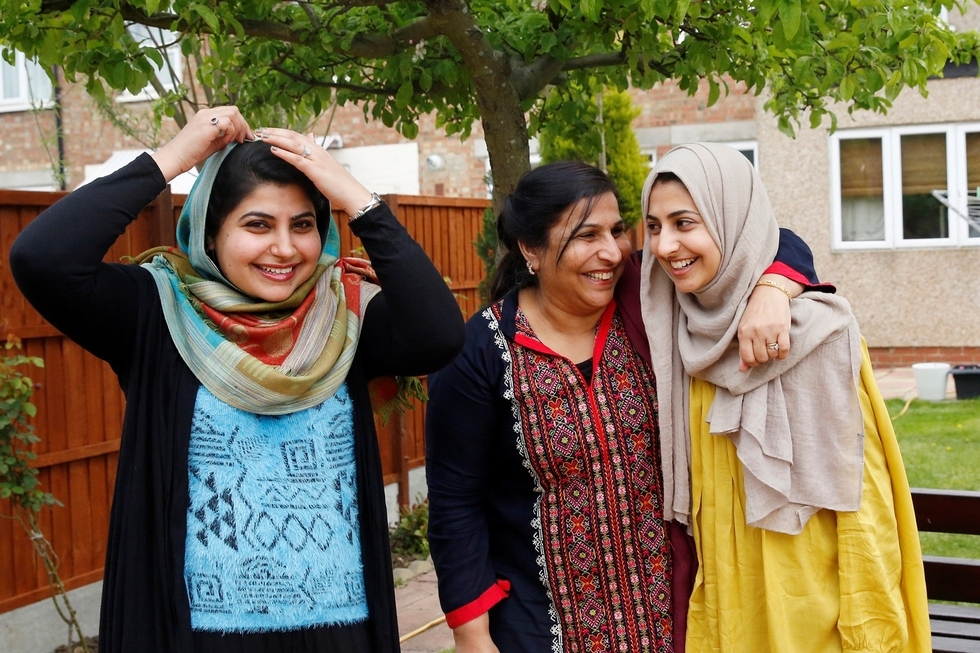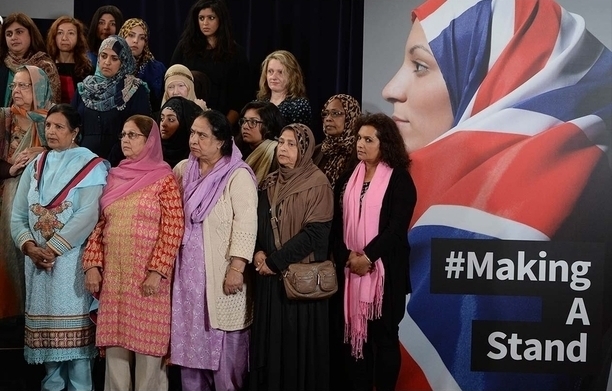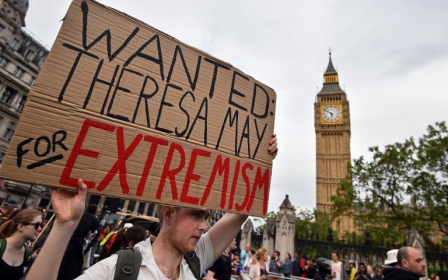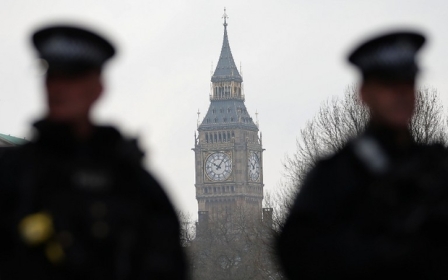What makes my Muslim patients feel less integrated is inequality not lack of English

As a GP who has worked for 12 years in an area where approximately 50 percent of my patients do not speak English as their first language, I was eager to see what the government's integration strategy would hold. The strategy is expected to be published in a green paper that will pledge £50m (nearly $70m) to boost integration in Britain
I also grew up in the area where I now work, and as a child would frequently accompany my parents to appointments or speak on their behalf on the telephone as, although they could speak English, they were not fluent in it or they didn't feel confident speaking it.
Misquoting figures
Now hardly a day goes by where I don't have to have an interpreter booked for a consultation. Very often the children of my patients will remind me of myself growing up. Up until recently, as the only female partner in the doctors' practice, I tended to see more women and among these, it is the elderly ladies or new immigrants who struggle most with the language.
These patients come from a range of different racial and religious backgrounds, so I was surprised to hear Sajid Javid say that in the report the government claims that "most" people in the UK who do not speak English are Pakistani and Bangladeshi women.
We grew up in an inner-city area, yet we were taught values of tolerance, fairness and respect as part of our faith, and feel as "integrated" as the next Mancunian
In actual fact, figures from the government website Ethnicity facts and figures show it to be one in six. The misquoting of figures that are available on the government's own website, launched to much fanfare last autumn, immediately frames the debate of integration around Muslim women, given the singular focus on the two ethnic groups which account for around two-thirds of the Muslim population.
Let's just entertain that for a few minutes.
As a doctor, I admit it can be frustrating when there is a language barrier during a consultation, even with an interpreter present, as often things are lost in translation, and I couldn't agree more that it would be great if more of my patients were able to speak English.
Totally integrated
So while I welcome the improved provision of childcare, for those that wish to take it, to help Asian women in particular access English lessons, the seriousness of the government's commitment to integration and English language is undermined by suggesting £50m in total expenditure - when cuts to ESOL language courses since 2009 amounted to £120m ($167m) alone.
There also seems to be a suggestion in the report that lower uptake of free childcare, which is significantly lower among women from ethnic minorities, particularly Asian communities, is limiting work opportunities and integration of children.
There is no evidence to suggest that pre-school children, who are not being placed in childcare, will be less integrated. My own immigrant mother was a stay-at-home mum when both I and my brother were young. We grew up in an inner-city area, yet we were taught values of tolerance, fairness and respect as part of our faith, and feel as "integrated" as the next Mancunian.
Triple discrimination
Most Pakistani and Bangladeshi women - as highlighted by the report - are in the 65-plus or the 45-64 age group. While we should support them in learning the language, we cannot pretend that teaching Bangladeshi and Pakistani women English will help the unemployment rates amongst them, and conflate the two issues.
Because the women who are looking for jobs and are being discriminated against are younger and have a full grasp of English. A recent BBC trial found that a job applicant with an English-sounding name received three times as many interviews as the applicant with a Muslim sounding name.
Muslim women face triple discrimination when trying to enter into the workplace. They face a penalty for being a woman, for being from an ethnic minority background, and a third penalty for being Muslim
We also know the findings of the House of Commons Women and Equalities committee showed that Muslim women face triple discrimination when they try to enter the workplace. They face a penalty for being a woman, for being from an ethnic minority background, and a third penalty for being Muslim.
But how is speaking English going to help when budget cuts are hitting the poorest BME women, like those I see, the most? Yes, it may possibly help these women to access benefits more easily, but instead why not address the real issues of integration faced by many - like my patients - highlighted in the Runnymede report on Islamophobia?
The real issues
English language proficiency is not the main issue in someone feeling less integrated and it needs to stop being framed as being about cultural differences. What makes my patients feel less integrated is inequality.
Whether that's in the labour market where my BME patients face a 10 percentage point employment gap, being hit by welfare and public service cuts, not having access to affordable housing, or losing their child's free school meal are examples of the deprivation that leads to division.
It is deprived areas rather than diverse areas that are generally less cohesive so this is not something that "social-mixing" will fix without looking at the root causes.
How can we ask those having worse opportunities than others to engage on terms created by those in more privileged positions?
Encouraging children to mix in schools because they live in single or religious-ethnic communities overlooks the real issues of institutional racism in housing policy, and the increase in hate incidents towards minorities in predominantly white communities.
An asset rather than a liability
The report by Muslim Council of Britain highlights that integration is a two-way street and that there needs to be an acknowledgement by British communities that they need to do more. Let’s start by viewing the Muslim community as an asset rather than a liability.
Most Muslims, like myself, are multilingual, and they form the most ethnically diverse religious community in the UK. More Muslims, especially females, enter higher education than white Britons. Their mothers may speak poor or no English, but they are raising children to aspire to a university education, however this isn't being talked about.
In a post-Brexit world, this is the workforce of Britain, but the UK government seems more interested in the mothers who can't speak fluent English than the barriers their daughters face as careerists of the future?
Lastly, when shared British values dominate the integration debate and the demand for communities to ensure they abide by them, at the same time we have letters like "Punish a Muslim Day" circulating, while parts of the media constantly run xenophobic and racist headlines and high-profile politicians entertain dog whistle politics and policies scapegoating communities. Surely these need to be addressed too?
The integration debate is a complex one and it isn't just about being able to speak English. It helps, but there are patients who can't speak English yet still feel integrated because they feel equal, like they belong and count in society. Perhaps that's where the focus needs to be?
- Siema Iqbal is a doctor and British Muslim opinion writer based in Manchester. She is currently a partner and trainer at a North Manchester GP practice. She enjoys writing and can often be found public speaking and raising money and awareness for charities both in the UK and abroad. In 2014, she also launched a business, Doctor Aesthetics.
The views expressed in this article belong to the author and do not necessarily reflect the editorial policy of Middle East Eye.
Photo: Most Muslims are multilingual, and form the most ethnically diverse religious community (Reuters)
Middle East Eye propose une couverture et une analyse indépendantes et incomparables du Moyen-Orient, de l’Afrique du Nord et d’autres régions du monde. Pour en savoir plus sur la reprise de ce contenu et les frais qui s’appliquent, veuillez remplir ce formulaire [en anglais]. Pour en savoir plus sur MEE, cliquez ici [en anglais].






